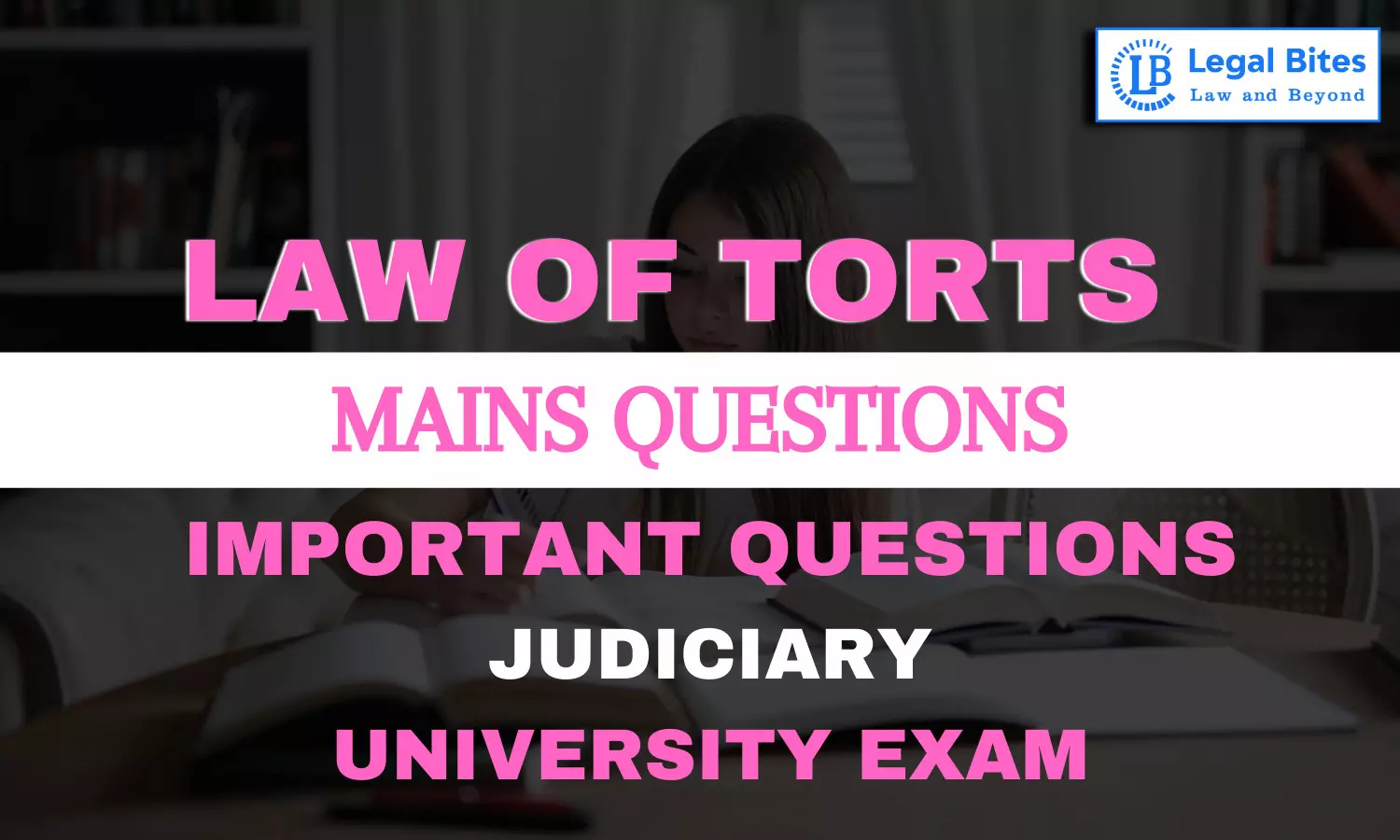Law of Torts Mains Question Answer Series 2: Important Questions for Exams | Part – II
Legal Bites presents the Law of Torts Important Question-Answer Series. The questions listed here will help students study for various Competitive and University Exams.

Legal Bites presents the Law of Torts Important Question-Answer Series. The questions listed here will help students study for various Competitive and University Exams. Candidates can use Legal Bites' list of questions to help them determine the most important and often asked questions and practice their aptitude and knowledge.
Answering questions is a continuous process that is an inevitable component of any test preparation, as we all know. A well-written response displays not just a candidate's knowledge but also his or her ability to tailor the content to the question's requirements.
It is vital to prepare for this exam to pass it thoroughly. To attain mastery over the subjects studied, applicants only need to keep practising these questions in the months coming up to the examinations. Following it, the candidate's confidence level, as well as their scores, will vastly improve.
Law of Torts Mains Question Answer Series 2: Important Questions for Judiciary Exams | Part – II
Question 1
(b) A asks for a lift from a motorist B. A is told by B - "I am not an expert driver. I am without a driving licence too. You may travel at your own risk." A travels with B. Later, the motor vehicle collides with a bus due to defective breaks of B's vehicle. A sues B for injuries suffered by him in the accident. B takes the plea of 'volenti non fit injuria'. Decide, after discussing the whole law relating to the aforesaid maxim. [BJS 2021]
Question 2
(b) Explain with the help of decided cases the rule of 'res ipsa loquitur'.
(c) Distinguish the principle of law laid down in Donoghue v. Stevenson. [BJS 2021]
Question 3
What are the essential constituents of negligence under torts? [DJS 2008]
Question 4
How are liquidated damages different from general damages? Are liquidated damages required to be proved? [DJS 2010]
Question 5
Distinguish between absolute and strict liability In the above case is the principle of strict liability applicable. Decide. [DJS 2014]
Question 6
How are damages awarded under a contract any different from those awarded for committing a tort? [DJS 2010]
Question 7
Explain the maxims injuria sine damno and damnum sine injuria citing relevant case law.
Question 8
Explain the concept of ‘innuendo‘ with the help of decided cases.

